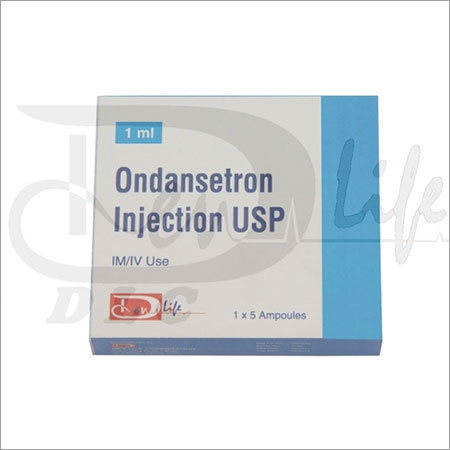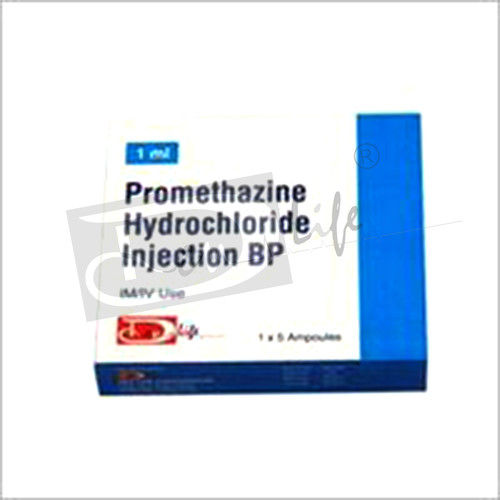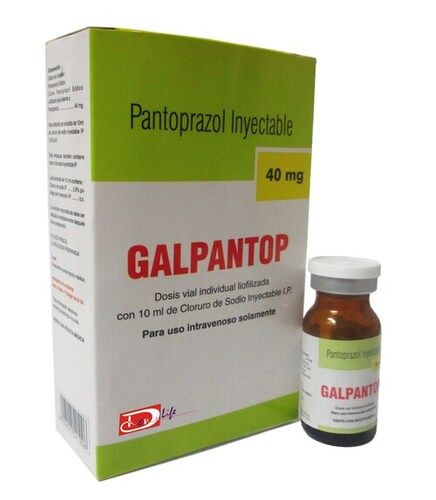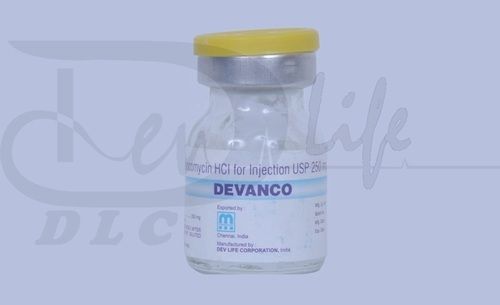- Home Page
- Company Profile
-
Our Products
- Pharmaceutical Tablets
- Prednisolone Tablets
- VITAMIN B COMPLEX TABLETS
- Vitamin D3 Tablets
- Aceclofenac & Diacerein Tablets
- Primaquine Tablets
- Artemether & Lumefantrine Tab
- Calcium Folinato
- Quinine Sulphate Tablet 300 mg
- Artemether and Lumefantrine Tablets
- Nifedipine Extended Release Tablets USP 20 mg
- Tinidazole Tablets
- Prochlorperazine Tablets
- Fexofenadine HCL Tablets
- Fluconazole Tab
- Ferrous Sulphate and Folic Acid
- Ferrous Sulphate And Folic Acid Tablet
- Amodiaquine Tablets
- Cefuroxime Axetile Tablets
- Colloidal bismuth subcitrate 120 mg tablets
- Clotrimazole Tablet
- Simvastatin Tablets
- Nystatin Tablets
- Ciprofloxacin Tablets 500mg
- Sodium Bicarbonate Tablets
- Clomifene Tablets BP 50mg
- Sulfadiazine Tablet
- Colchicine Tablets
- Warfarin Tablets
- ENALAPRIL MALEATE TABLETS USP 5MG
- Doxycyclin Hyclate Tablets USP 100 mg
- Dapsone Tablets BP 50 Mg
- Calcium With Vitamin D3 Chewable Tablets
- Albendazole Tablets 400 Mg
- Erythromycin Stearate Tablets BP
- Aminophylline 100mg Tablets
- Fluoxetine Tablet 20mg
- Cefixime Tablets USP 200 mg
- Sulfadoxine Pyrimetanine Tablet
- Ibuprofen Tablets 400mg
- Lisinopril Hydrochlorothiazide tablets USP
- Ciprofloxacin Tablets USP 750 mg
- Cefalexin Capsules BP 250mg
- Cefixime Tablets USP 400 mg
- Carvedilol Tablets
- Prednisolone Tablets USP 20 mg
- Bisacodyl Tablets
- Amitriptyline Tablets
- Nitrofurantoin Tablets BP
- Ciprofloxacin Tablets USP 500
- Amoxicillin Dispersible Tablets
- Chloroquine Phosphate Tablets BP
- Prolonged - Release Potassium Chloride Tablets BP
- ALBENDAZOLE TABLETS USP 200mg
- Ciprofloxacin Tablets USP 500mg
- OLANZAPINE 10mg
- Senna Tablets
- Ciprofloxacin Tablets USP 500 mg
- Gastro-resistant Diclofenac Tablets 50mg
- ClOPIDOGREL TABLETS USP 75mg
- Clopidogrel Tablets USP
- ALUMINIUM HYDROXIDE TABLETS BP 500mg
- Metronidazole Tablets BP 500mg
- Ranitidine Tablets USP
- Lisinopril Tablets USP 10mg
- Paracetamol Phenylephrine Hydrochloride and Chlorpheniramine Maleate Tablets
- Pyrimethamine Tablet
- Albendazole Tablets
- Carvedilol Tablets USP
- Carbimazole Tablets
- Lisinopril Tablets
- Prednisolone Tablets BP
- Griseofulvin Tablets BP
- Phenytoin Tablets BP
- Norfloxacin Tablets BP
- Ranitidine Tablet
- Levofloxacin Tablets
- Esomeprazole Tablets
- Devazole Tablet
- Fluconazole Tablet
- Paracetamol Phenylephrine HCl and Chlorpheniramine Maleate Tablets
- CLOTRIMAZOLE VAGINAL PESSARY
- Nifedipine Extended Release Tablets
- Betahistine Dihydrochloride Tablets
- Chloroquine Phosphate
- Pharmaceutical Injections
- Promethazine Injection
- Chlorpromazine Injection
- Adrenaline Injection
- Lidocaine Injection
- Cloxacillin Injection
- Ceftriaxone Injection
- Bupivacaine Injection
- Kanamycin Injection
- Calcium Gluconate Injection
- Progesterone injection
- Prednisolone Acetate Injectable Suspension USP
- Dobutamine Injection
- Bupivacaine Hcl with Dextrose Injection USP
- Iron Sucrose Injection
- DEVCEF 1000 (Ceftriaxone for Injection USP 1000 mg)
- Atenolol Injection
- Sterilised Water for Injection
- Phenytoin Sodium Injections
- Magnesium Sulfate Injection USP 200mg
- Andrenaline Inj. BP
- Potassium Chloride for Injection Concentrate USP 100 mg/mL
- HEPARIN SODIUM INJECTION BP 5000 UI/ML
- Dopamine Hydrochloride Injection USP 200mg
- CLINDAMYCIN INJECTION USP 150mg/ml
- Clindamycin Injection
- Gentamycin Sulphate Injection
- Medroxyprogesterone Acetate Injection
- Dobutamine Injection USP 12.5 mg/mL
- Iron Dextran Injections
- Devoxa Injection
- Bupivacaine hcl in dextrose injection USP
- Pantoprazole For Injection 40mg
- Vancomycin Hcl Injection
- Ceftriaxone For Injection USP 1g
- Imipramine HCL Injection
- Vondan Ondansetron Injection
- Suxamethonium Chloride Injection BP 50 mg/mL
- Adrenaline Injection BP 1mg
- Magnesium Sulfate Injection USP 500mg
- Vancomycin Hydrochloride For Injection
- Hydralazine HCL Injection
- Noradrenaline Injection
- Potassium Chloride Injection
- Clonidine HCL Injection
- Amphotericin B
- Methylcobalamine Injection
- Sterile Potassium Chloride Concentrate
- Phenytoin Sodium Injection
- Ranitidine Injections
- Furosemide Injection
- Ondansetron Injection
- Ranitidine Injection
- Creams and Ointments
- Lidocaine Jelly
- Diclofenac Sodium Gel
- Miconazole cream BP
- Betamethasone Valerate + Gentamicin Sulphate+Tonaftate Iodochlorhydroxyquinoline Cream
- Silver Sulphadiazine Cream
- Metronidazole with Povidone Iodine Cream
- Povidone Iodine Ointment U.S.P
- Crotamiton Cream
- Hydroquinone Cream
- Tretinoin Cream
- Clobetasole Propionate Cream
- Fusidic Acid
- Acyclovir Ointment
- Capsaicin Gel
- Betamethasone Dipropionate Clotrimazole Neomycin Cream
- Anti-Hemorrhoidal Ointment 10 g
- Anti-Hemorrhoidal Ointment 20 g
- Zinc Oxide and Castor Oil Cream
- Beclomethasone Clotrimazole Neomycin Cream
- Beclomethasone / Clotrimazole / Neomycin Cream
- Capsin Gel
- Khwaderm Cream
- Miconazole Nitrate Cream
- Acyclovir Ointments
- Hard Gelatin Capsules
- Amoxicillin Capsules BP 500mg
- FLUCLOXACLLIN CAPSULES BP 500mg
- Cefalexin Capsules BP 500mg
- Cefuroxime Axetile Tablets USP 250mg
- Fluconazole Capsules 200 mg
- Doxycycline Capsules BP 100mg
- Esomeprazole 20mg
- Esomeprazole 40mg
- Fluconazole Capsules
- Methylcobalamin and Pregabalin Capsules
- Azithromycin Capsules
- Oral Suspension
- Ciprofloxacin Suspension
- Cefixime for Oral Suspension USP 100 mg/5 mL
- Azithromycin for oral suspension USP
- Ibuprofen and Paracetamol Suspension
- Artemether and Lumefantrine Oral Suspension
- Carbocisteine Suspension
- Peadiatric Multivitamin Drops
- Artemether and Lumefantrine For Oral Suspension
- Amoxicillin Oral Suspension BP 250 mg
- Fluconazole Oral Suspension 50mg/5ml
- Azithromycin For Oral Suspension USP
- Cefixime For Oral Suspension USP
- Metronidazole Oral suspension BP 125mg/5ml
- Bromhexine Hydrochloride
- Cloxacillin Sodium
- Quinine Sulfate
- Bromhexine Hydrochloride Elixir
- Liquid Orals
- Soft Gelatin Capsules
- Injection Large Volume Parenterals
- Pharmaceutical Capsules
- Dry Syrup
- Eye Drops / Ear Drops
- Antiseptic & Antiparasitic Lotions
- Pharmaceutical Tablets
- More Info
- Contact Us
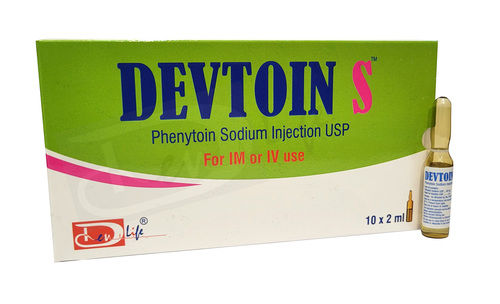
Phenytoin Sodium Injection
Product Details:
- Salt Composition Phenytoin Sodium
- Pacakaging (Quantity Per Box) 10x2 ml
- Origin of Medicine India
- Drug Type Injection
- Physical Form Liquid
- Dosage As per suggestion
- Suitable For Children
- Click to view more
X
Phenytoin Sodium Injection Price And Quantity
- 50000 Box
Phenytoin Sodium Injection Product Specifications
- India
- 10x2 ml
- As per suggestion
- Injection
- Phenytoin Sodium
- Cool & Dry Place
- Liquid
- Children
Phenytoin Sodium Injection Trade Information
- Cash on Delivery (COD) Cash Advance (CA) Letter of Credit at Sight (Sight L/C) Letter of Credit (L/C)
- Contact us for information regarding our sample policy
- 10 x 2ml Ampoules in printed carton with pack insert.
- Asia Australia Central America North America South America Eastern Europe Western Europe Middle East Africa
- All India
Product Description
Indications:
Phenytoin Sodium Injection USP is indicated for the control of status epilepticus of the grand mal type, and prevention and treatment of seizures occurring during neurosurgery.
Dosage & Administration:
The addition of Phenytoin Sodium Injection USP to intravenous infusion is not recommended due to lack of solubility and resultant precipitation.
Not to exceed 50 mg per minute, intravenously in adults, and not exceeding 1 - 3 mg/kg/min in neonates.
Status Epilepticus
In adults, a loading dose of 10 to 15 mg/kg should be administered slowly intravenously, at a rate not exceeding 50 mg per minute. The loading dose should be followed by maintenance doses of 100 mg orally or intravenously every 6-8 hours.
Neurosurgery
Prophylactic dosage 100 to 200 mg intramuscularly at approximately 4-hour intervals during surgery and continued during the postoperative period.
Contraindications:
Phenytoin is contraindicated in patients with a history of hypersensitivity to hydantoin products. Because of its effect on ventricular automaticity, phenytoin is contraindicated in sinus bradycardia, sino-atrial block, second and third degree A-V block, and patients with Adams-Stokes syndrome.
Warnings:
Intravenous administration should not exceed 50 mg per minute in adults. In neonates, the drug should be administered at a rate not exceeding 1 - 3 mg/kg/min.
Severe cardiotoxic reactions and fatalities have been reported with atrial and ventricular conduction depression and ventricular fibrillation. Severe complications are most commonly encountered in elderly or gravely ill patients.
FAQs of Phenytoin Sodium Injection:
Q: What is the physical form of Phenytoin Sodium Injection?
A: The physical form of Phenytoin Sodium Injection is liquid.Q: How should Phenytoin Sodium Injection be stored?
A: Phenytoin Sodium Injection should be stored in a cool and dry place.Q: What is the salt composition of Phenytoin Sodium Injection?
A: The salt composition of Phenytoin Sodium Injection is Phenytoin Sodium.Q: Who is Phenytoin Sodium Injection suitable for?
A: Phenytoin Sodium Injection is suitable for children.Q: What is the packaging quantity per box of Phenytoin Sodium Injection?
A: The packaging quantity per box of Phenytoin Sodium Injection is 10x2 ml.Tell us about your requirement

Price:
Quantity
Select Unit
- 50
- 100
- 200
- 250
- 500
- 1000+
Additional detail
Mobile number
Email


